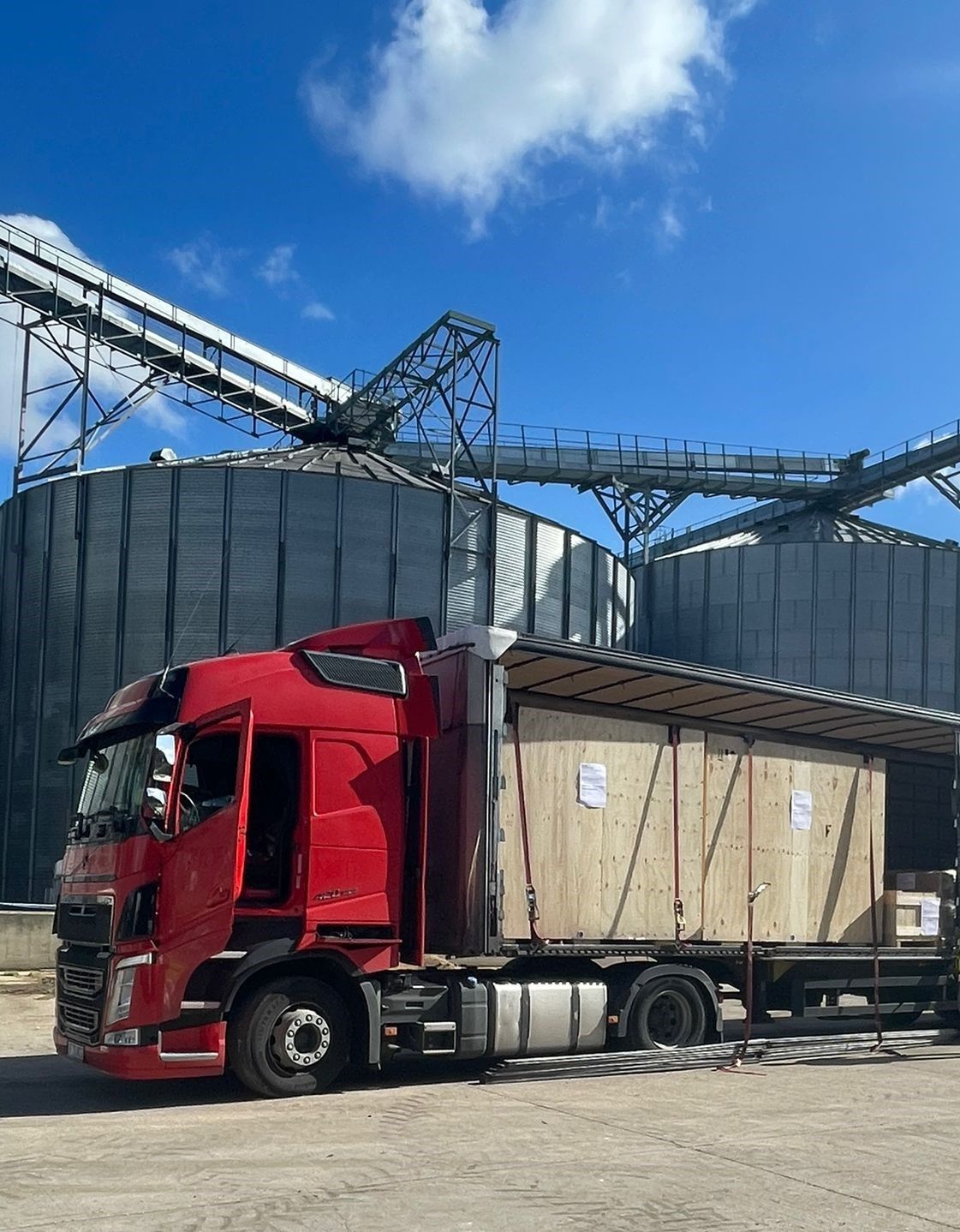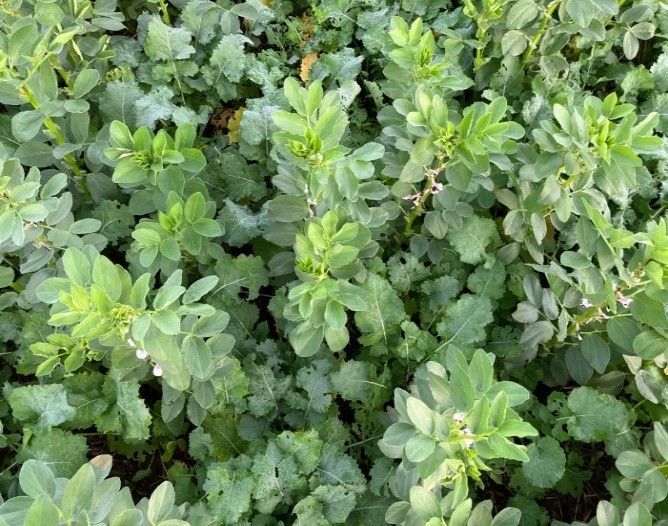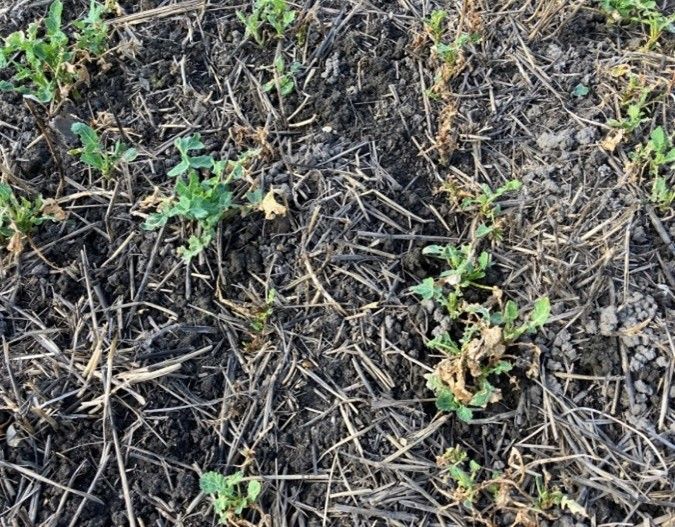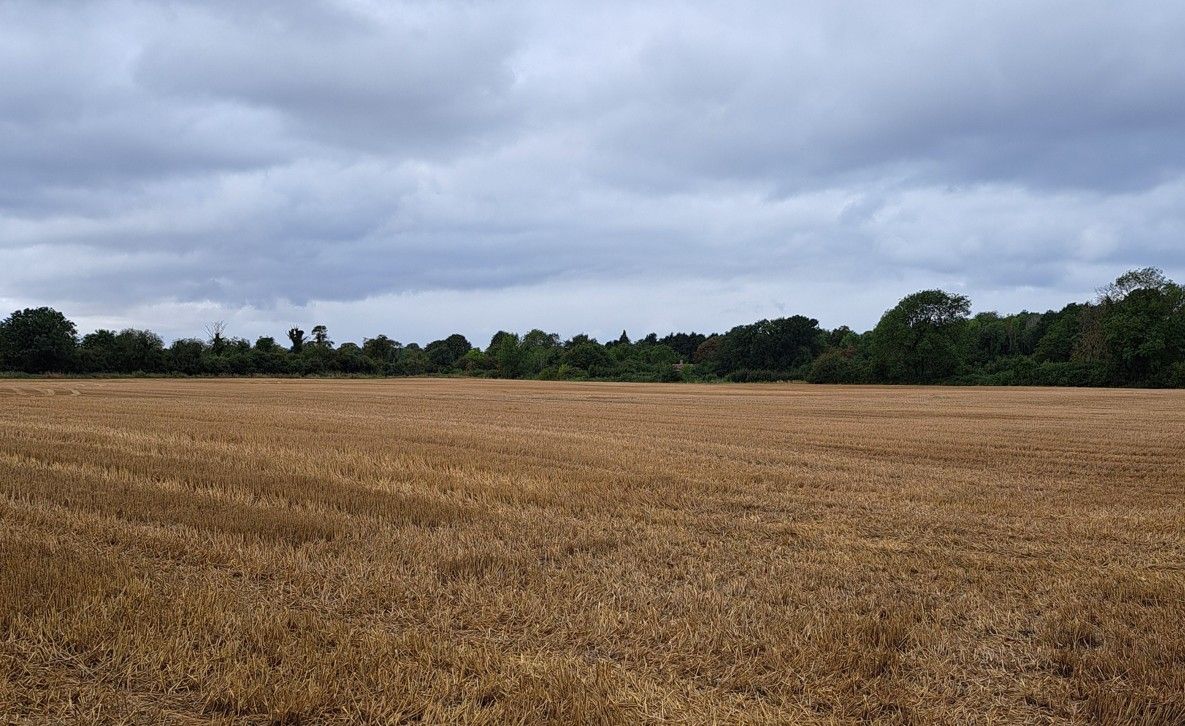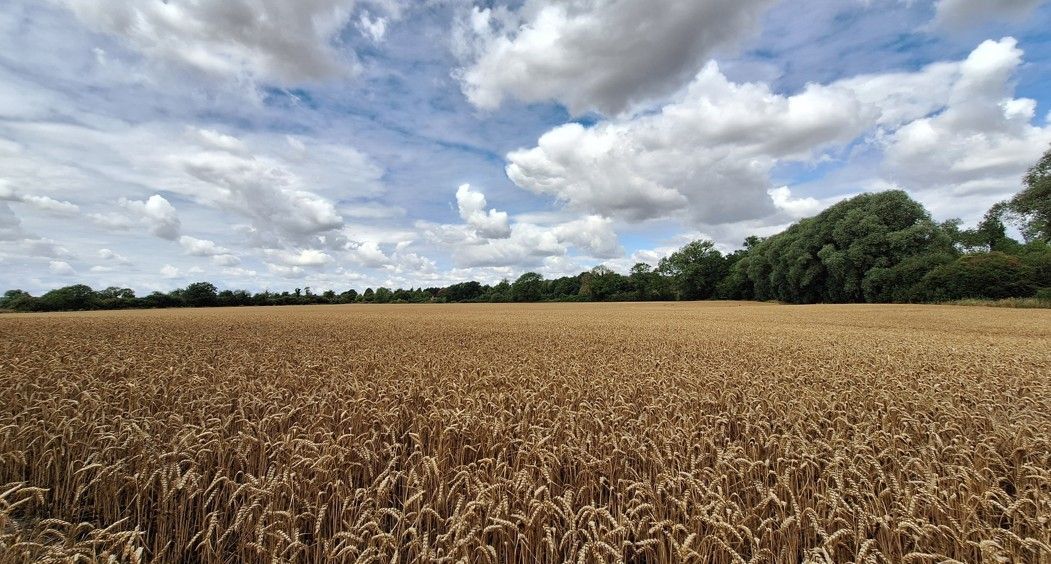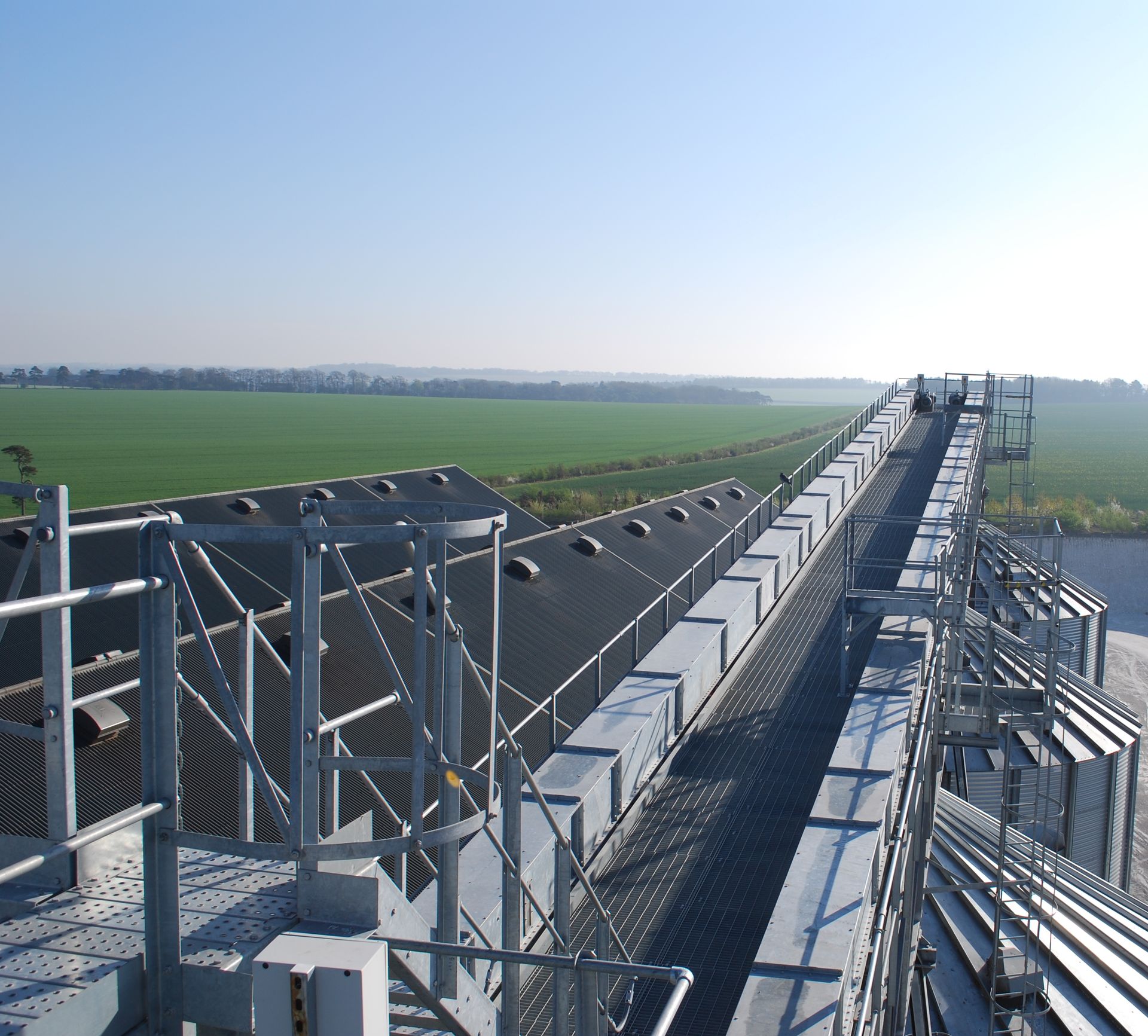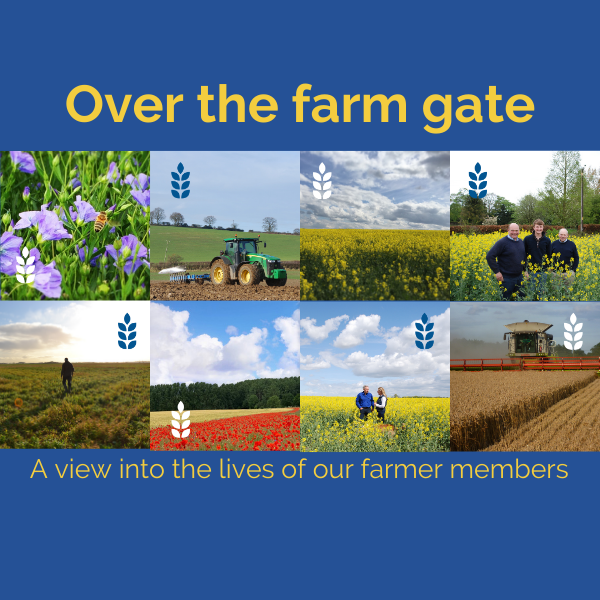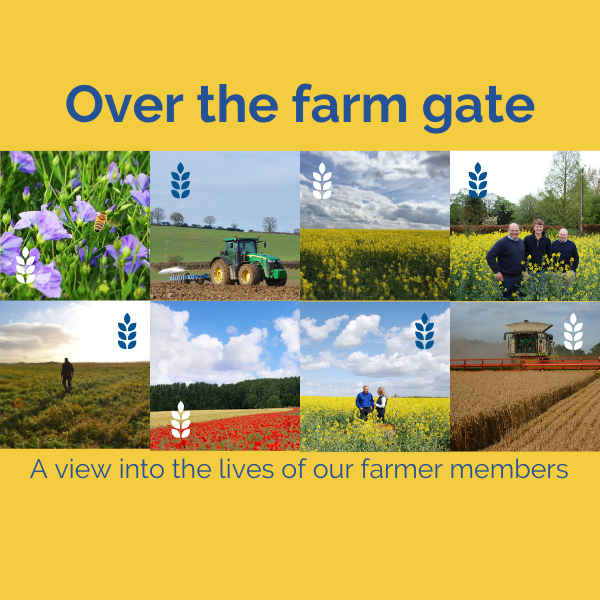Over the Farm Gate - this week kindly supplied by David White, Camgrain Vice Chairman, Hawk Mill Farms, Cambs.
February is usually referred to as the “fill dyke” month. This year it will stand out as it being exceptionally dry however. After 60mm of rainfall in January we’ve only had 7mm in February with the first measurable amount being on the 23rd. Unless things change very quickly this will be the first winter that water hasn’t flowed under the watermill next to my house. The flow usually (sadly) ceases at some point during the summer but always returns during the winter when the ground water-table rises again. Climate change (variability?) combined with ever increasing demand for water by the burgeoning Cambridgeshire population is the reason. Its hard to believe that the mill was fully operational into the 1930s and the reliable flow of water turned a turbine generator post WWII, how green was that!
If we are in for a drought then the kind February weather has at least enabled farms to get the spring drilling underway, or in the case of some, completed. Early drilled crops have a longer growing season and usually will have a better developed root system enabling efficient scavenging of moisture and reliable yields.
The kind weather has also enabled an early application timing of nitrogen on the winter cereals which have responded with some new spring growth and look a lovely shade of green. What doesn’t look so good however (at least around here) is the OSR. Whilst looking capable of producing a reasonable yield in January, justifying an application of nitrogen, it has since largely died on its feet due to being eaten internally by a combination of Cabbage Stem Flea Beetle larvae and Winter Stem Weevil.
This ordinarily would not be the end of the world as we would re-plant a failed crop with a different crop. However the soil acting combination herbicide used on OSR (AstroKerb) is so effective that it precludes planting just about anything else this growing season! This does make me question just what we are being advised to apply to our soil and its destructive effect on the soil food web (see below), also see https://youtu.be/uAMniWJm2vo
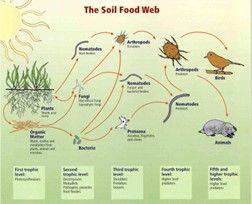
This thought was also echoed by organic farmer member, John Pawsey, Slough Hall Farm LLP ,in his excellent piece Putting farmers back in the driving seat in the East Anglian Daily Times last week where he said “The heady mix of active ingredients I was loading into my sprayer on the advice of my agronomist, had made me feel unqualified to make even the most basic agronomic decision”. I think we need to get back to the basics of husbandry and away from arrives-in-a-can (chemical warfare) solutions.
Is there a different solution? I’m about to find out. An area on the farm has been moved into a new regenerative rotation and will be added to over the next two years. It has been planted to a blend of spring milling wheat and will receive no delivered in cans “cides” which includes the total herbicide glyphosate. Organic then, not quite as I can use a small rate of synthetic nitrogen if justified by plant sap tests that show the planted bean companions haven’t fixed enough free nitrogen from the atmosphere for the crop’s needs. One of the most often asked farming questions is how are we going to farm without glyphosate (if the misguided “greens” get it banned), there’s only one way to find out……..
So the farm slowly changes with a regenerative rotation, using no ag-chems, bi-crops, no OSR crops and potentially even some woolly livestock grazing on nutrition building herbal grass lays going forward. OSR is a much-needed break crop in the arable rotation and will need to be replaced here. The other options of peas, beans and linseed are not especially reliable. However, the payment rates for stewardship scheme options have increased of late and at least the fallow (non crop) type options will show a margin compared to unreliable break crops that can ultimately fail.
Farming practices are changing, it might be just for the minority or the attraction of DEFRA monies might turn it into a wider trend. Just looking at how some of the Camgrain farmer directors are thinking and farming now has changed over a very few years. As Camgrain celebrates its 40th anniversary year we need to be prepared to adapt to changing times, member and customer requirements, and work hard to maintain our relevance into the next decades.
David White
Vice Chairman
